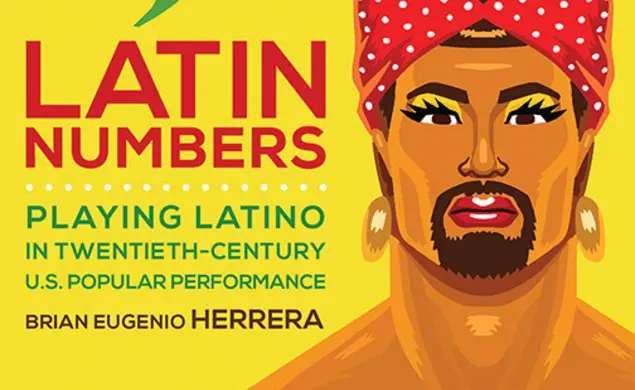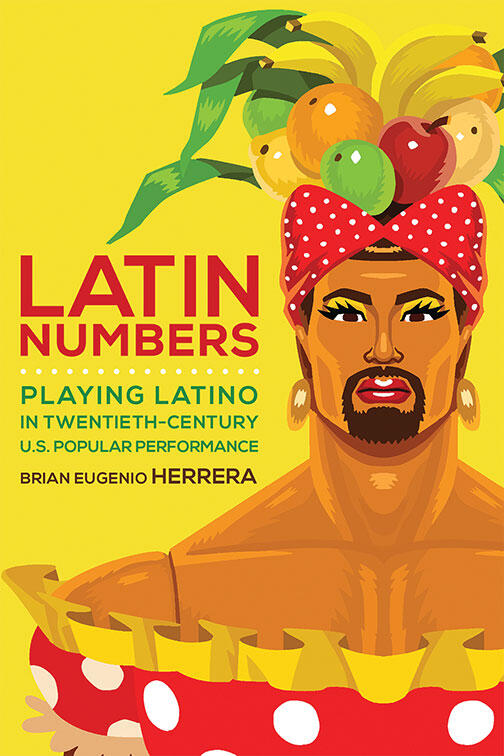Faculty Book: Brian Herrera

Theater professor Brian Herrera vividly recalls the first time he watched West Side Story as a sixth-grader on summer break at his grandmother’s home in New Mexico. He saw in Bernardo, the protective older brother of Maria, a role he could play: “I saw a charismatic, forceful, principal role that did not hide or elide being Latino, a role in which being Latino seemed an asset rather than a liability.”
In Latin Numbers: Playing Latino in Twentieth Century U.S. Popular Performance, Herrera examines the way Latino actors on the stage and screen have communicated ideas about race and ethnicity. He also explores the origins and legacies of some of the stock Latino characters that have been prevalent in popular culture: the Conga-line dancer of the 1930s, the gang member of the 1950s, and the gay lover of the 1990s AIDS era.
“The lady with the fruit on her head and the swashbuckling Latin lover go back 100 years,” says Herrera, who traces how Latino actors have adapted and revised these characters through the years. Singer and actress Carmen Miranda played off the image of a Latina clown in the 1950s; today, actress Sofia Vergara incorporates elements of the same character type on the TV sitcom Modern Family, he points out.
Herrera examines several periods during which Latinos seemed to explode in the national consciousness, such as when waves of Puerto Ricans arrived in New York City in the 1950s as West Side Story was soaring to fame. He has found that the media often portray Latinos as on the verge of breaking out as a significant cultural phenomenon but, Herrera notes, such moments often are short-lived.
Though Herrera long ago gave up his dream of becoming an actor for a life in academia, in 2010 he created an autobiographical, one-man show about gaining brief fame at 17, when he wrote a patriotic speech that won a national contest. Herrera has performed I Was The Voice of Democracy in more than a dozen cities in the United States and as far away as Beirut and Abu Dhabi. The stories he tells touch on his evolving understanding of what it means to be Latino. “It’s a subject,” Herrera says, “I’ve been researching my entire life.”
LISTEN: Herrera’s play, I Was The Voice of Democracy, courtesy of PRX
The Latest
See all








